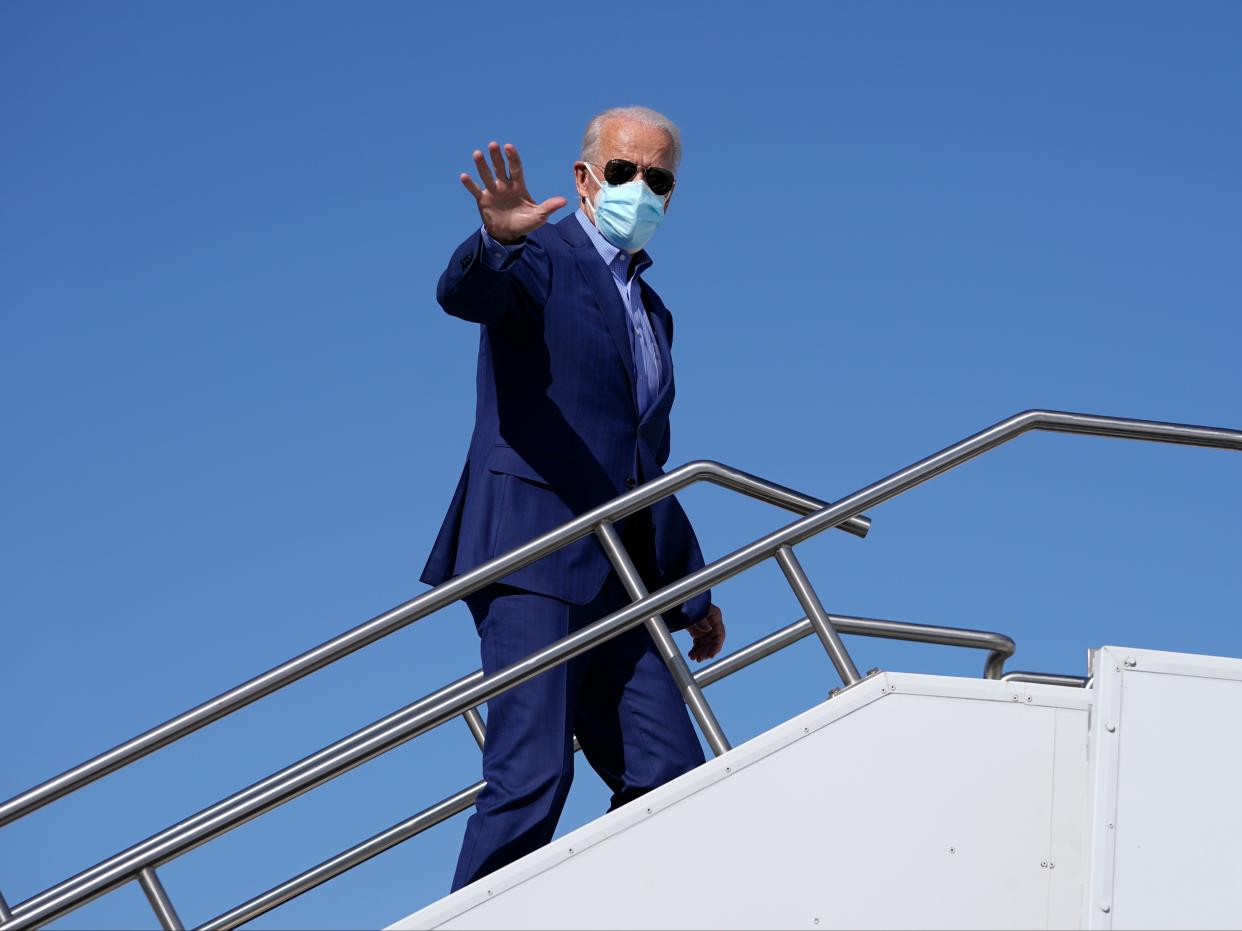How Joe Biden could create an international ‘Climate Club’ to ramp up results

- Oops!Something went wrong.Please try again later.
Joe Biden regularly touts his long foreign policy record, and a new study suggests that it is on the international stage where the former vice president could have significant impact on the climate crisis, if he wins the election.
The report, published on Friday by the Climate Solutions Lab (CSL) at Brown University’s Watson Institute of International and Public Affairs, is intended as a roadmap for whoever wins the election. However it recognises Mr Biden’s sweeping climate agenda and proposes 10 additional actions. (The Trump campaign is recycling the 2016 GOP climate platform which calls for “market and tech solutions”).
Mr Biden’s climate plan is the boldest of any presidential candidate in history and includes a £2trn investment in clean energy in the US over four years.
But domestically, he would likely come up against some serious opposition - not only from certain factions of Congress but also the powerful fossil fuel industry and its well-funded lobbyists.
Yet, internationally, Mr Biden could wield significant influence after four years of the Trump administration’s retreat from the world stage, such as the US withdrawal from the World Health Organisation (WHO) and Paris Climate Accord.
The Democratic candidate has already committed to rejoining the Paris deal, which sets global emissions reduction targets.
To build on this, the CSL report suggests that the US team up with foreign allies and apply pressure to “reluctant foreign actors”.
The report’s foreign policy suggestions include:
- Creating an international “Climate Club”, including at least fellow large emitters like the EU and China to get the ball rolling, then collectively committing to a minimum carbon price in each country, and penalising non-participants through carbon tariffs;
- Rejoining WHO and redirect its operations toward climate change;
- Launching a new partnership with the 10 leading democracies with the climate crisis at the heart of it;
- Decarbonising aviation and shipping sectors in collaboration with advanced democracies;
- Addressing environmental migration with a State Department task force, leading an international coalition to improve international legal recourse, and directing the US ambassador to the UN to prioritise climate security;
- Protecting the Amazon rainforest by working with Brazil and others.
The study notes that a “climate club” is viewed as a “promising approach” by many economists and foreign policy experts but would first require that the US “get its own house in order” to address the climate crisis at home.
Jeff D Colgan, CSL director, described America’s continued inaction on the climate crisis as “very worrisome”.
He added: "Domestic policy and foreign policy must work together, hand-in-glove. Each policy is weaker without the other.”
The United Nations Intergovernmental Panel on Climate Change (IPCC) has warned that global carbon emissions must be cut in half in the next decade if we are to have the best chance at avoiding catastrophic climate breakdown, including more severe wildfires, droughts, heatwaves and hurricanes.
Professor Colgan also points out that the recommendations can be taken by executive action and completed on day one of the next administration.
The report’s domestic recommendations include:
- Directing the Federal Reserve to address systemic financial risks created by climate change
- Declaring a national climate emergency, including using military funding to secure and decarbonize the electricity grid
- Accelerating the expansion of clean energy technologies and issue loan guarantees to clean energy developers and utilities.
Read more
The Latest: Trump refusing to do a virtual debate with Biden
Hurricane Delta goes from tropical storm to Cat-4 in record time
Mike Pence will not say climate change is an ‘existential threat’

